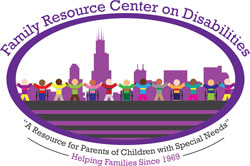Evaluation and Assessment Process
Service coordinator
Once connected with either Child Find or your community’s early intervention program, you’ll be assigned a service coordinator who will explain the early intervention process and help you through the next steps in that process. The service coordinator will serve as your single point of contact with the early intervention system.
Screening and/or evaluation
One of the first things that will happen is that your child will be evaluated to see if, indeed, he or she has a developmental delay or disability. (In some states, there may be a preliminary step called screening to see if there’s cause to suspect that a baby or toddler has a disability or developmental delay.) The family’s service coordinator will explain what’s involved in the screening and/or evaluation and ask for your permission to proceed. You must provide your written consent before screening and/or evaluation may take place.
The evaluation group will be made up of qualified people who have different areas of training and experience. Together, they know about children’s speech and language skills, physical abilities, hearing and vision, and other important areas of development. They know how to work with children, even very young ones, to discover if a child has a problem or is developing within normal ranges. Group members may evaluate your child together or individually. As part of the evaluation, the team will observe your child, ask your child to do things, talk to you and your child, and use other methods to gather information. These procedures will help the team find out how your child functions in the five areas of development.
Exceptions for diagnosed physical or mental conditions
It’s important to note that an evaluation of your child won’t be necessary if he or she is automatically eligible due to a diagnosed physical or mental condition that has a high probability of resulting in a developmental delay. Such conditions include but aren’t limited to chromosomal abnormalities; genetic or congenital disorders; sensory impairments; inborn errors of metabolism; disorders reflecting disturbance of the development of the nervous system; congenital infections; severe attachment disorders; and disorders secondary to exposure to toxic substances, including fetal alcohol syndrome. Many states have policies that further specify what conditions automatically qualify an infant or toddler for early intervention (e.g., Down syndrome, Fragile X syndrome).
Determining eligibility
The results of the evaluation will be used to determine your child’s eligibility for early intervention services. You and a team of professionals will meet and review all of the data, results, and reports. The people on the team will talk with you about whether your child meets the criteria under IDEA and state policy for having a developmental delay, a diagnosed physical or mental condition, or being at risk for having a substantial delay. If so, your child is generally found to be eligible for services.
Initial assessment of the child
With parental consent, indepth assessment must now be conducted to determine your child’s unique needs and the early intervention services appropriate to address those needs. Initial assessment will include reviewing the results of the evaluation, personal observation of your child, and identifying his or her needs in each developmental area.
Initial assessment of the family
With approval of the family members involved, assessments of family members are also conducted to identify the resources, concerns, and priorities of the family related to enhancing the development of your child. The family-directed assessment is voluntary on the part of each family member participating in the assessment and is based on information gathered through an assessment tool and also through an interview with those family members who elect to participate.
Who pays for all this?
Under IDEA, evaluations and assessments are provided at no cost to parents. They are funded by state and federal monies.
Information taken from the Center of Parent Information and Resources. Updated, March 2014 A legacy resource from NICHCY
